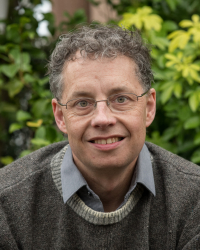You are here
Carl-Bergstrom

I use mathematical models and computer simulations to study a wide range of problems in population biology, animal behavior, and evolutionary theory. My current research efforts are concentrated in several areas.
Science of science
I am interested in how current norms and institutions shape scientific knowledge. While researchers may be driven by intrinsic curiosity, they are constrained by the realities of the scientific ecosystem in which they operate and motivated by the other incentives — monetary and otherwise — with which they are confronted. What we know about the world is determined by what hypotheses scientists choose to test, what models they choose to compare, what parameters they choose to estimate, and other decisions that researchers make about the direction of their investigations. Therefore the choices that researchers make are not purely epistemic, but rather are shaped also by the norms and institutions that govern and support the scientific endeavor.
As a result, the concordance between our knowledge of nature and its actual workings is shaped by our scientific norms and institutions. Those norms and institutions influence what questions we ask and do not ask, what hypotheses we test and do not test, what we learn and do not learn, what we believe correctly and what we believe incorrectly about the world. While this observation may seem discouraging, it offers a huge opportunity. If the norms and institutions that constitute contemporary science emerged haphazardly over the past four centuries, we should have ample room to nudge the scientific ecosystem in directions better tailored to our contemporary research questions and technologies.
Information in biological systems.
How do living organisms acquire, store, and make use of information? How and why does communication evolve?
Together with evolutionary theory, I use mathematical game theory and the statistical theory of signal transmission in order to understand the flow of information in the natural world. I am particularly interested in the strategic aspects of communication: Why do organisms share information even when their interests conflict? Why do individuals share some pieces of information and not others? Why do signals take the forms that they do? Why don't cheaters exploit and undermine communication by sending deceptive signals? How does information flow through biological and social networks?
Evolution and Medicine
The field of evolution and medicine aims to answer this question. Our approach is not to posit adaptive stories for disease, but rather to seek evolutionary explanations for our vulnerability to disease. There are two lines of attack. One is to recognize that our nemeses — pathogens and parasites — are themselves evolving rapidly, and to study the processes by which they evolve with an eye toward improved prevention and treatment. The other is to look at our own bodies as the products of an evolutionary process, and use that fact to understand sources of ill health. Both approaches suggest new hypotheses and explanations which can shape the medical research agenda, and perhaps ultimately even influence medical practice.
I am a member of the External Faculty at the Santa Fe Institute.
I am a Professor of Biology at the University of Washington. Though trained in evolutionary biology and mathematical population genetics, I enjoy working across disciplines and integrating ideas across the span of the natural and social sciences.
The unifying theme running throughout my work is the concept of information. Within biology, I study how communication evolves and how the process of evolution encodes information in genomes. In the philosophy and sociology of science, I study how norms and institutions influence scholars’ research strategies and, in turn, our scientific understanding of the world. Within informatics, I study how citations and other traces of scholarly activity can be used to better navigate the overwhelming volume of scholarly literature. Lately I've become concerned with the spread of disinformation on social networks, and interested in figuring out what we can do about it.
